TL;DR
“How do I rank higher on Google?”
It’s the million-dollar question. Ranking highly in search results directly impacts the number of users that visit your site via organic traffic. The higher you rank for your targeted keywords, the more likely it is that searchers will click through to your page.
To boost your business’s Google ranking for niche-specific, awareness-building keywords, you need to understand what matters to the search engine giant. The same goes for the bottom-of-the-funnel search queries that drive conversions. In other words, you need to get up close and personal with Google’s most relevant ranking factors.
Let’s say you sell PC accessories. When someone types ‘buy computer mouse’ into Google Search (or another search engine – hi Bing), you want your website to appear on page one – ideally in position one – of search engine results pages (SERPs).
To rank on page one, you need to improve your web page in a way that convinces Google it answers the search query and user’s intent better than any other page on the internet – kinda a tricky task since Google pulls 375,000,000 results in 1.29 seconds for the phrase ‘buy computer mouse.’
Improving your web page to rank higher in Google’s and other search engines’ results pages is search engine optimization (SEO).
When it comes to SEO, you’re typically competing for conversions against businesses that sell products and services akin to your own – a swimmer doesn’t usually race against a sprinter. And if you’re a local business, you’re only competing against like businesses in your area – Google will serve searchers in New York different results than searchers in Paris for queries like ‘best brunch.’
Before we get into the how, it’s worth clearing up a couple of SEO myths:
Google uses its search rankings to give its users the best possible experience. To achieve that mission, the search engine looks for the ‘most relevant,’ ‘highest quality,’ and ‘most appropriate’ answer to search queries in its index (the web pages that Google knows about) based on its ranking factors.
In addition to content, Google uses an array of technical factors – mobile-friendliness, for example – to influence SERPs.
All in all, Google uses hundreds of factors (not necessarily all at once, as some won’t apply in certain situations) to weed out the good from the bad, and it does a pretty good job most of the time. What’s more, these factors and their weight are constantly changing.
‘…rather than trying to guess the algorithm and design your page for that,’ Google writes in its Advanced: How Search Works guide, ‘work on creating good, fresh content that users want, and following our guidelines.’
Alright, Google, that’s cool and all, but you’re going to need to be a bit more specific. At least tell us which ranking factors are the most important.
While employees at Google never explicitly reveal which factors are the most important (most of the engineers at Google don’t know themselves), the company’s patents and search results give us clues as to what it takes to rank.
Here are some of Google’s most relevant ranking factors:
Compelling, high-quality, relevant, and trustworthy content is key to winning first place in SERPs.
In 30-seconds or less, quality content answers your target audience’s questions in a way that’s engaging, interesting, unique, accurate, easy to follow, fresh, and sharable – that goes for your home page, product pages, services pages, blog posts, and so on. Your visitors will look for different content at various stages of the customer journey, so be sure to target the right keywords and create content that meets evolving expectations.
Search intent is the motivation behind a search. To illustrate the effects of search intent on SERPs, let’s go back to our ‘buy computer mouse’ example. This searcher is in buying mode, and Google knows it. The search engine will likely show eCommerce pages and a map of local computer stores that sell mice.
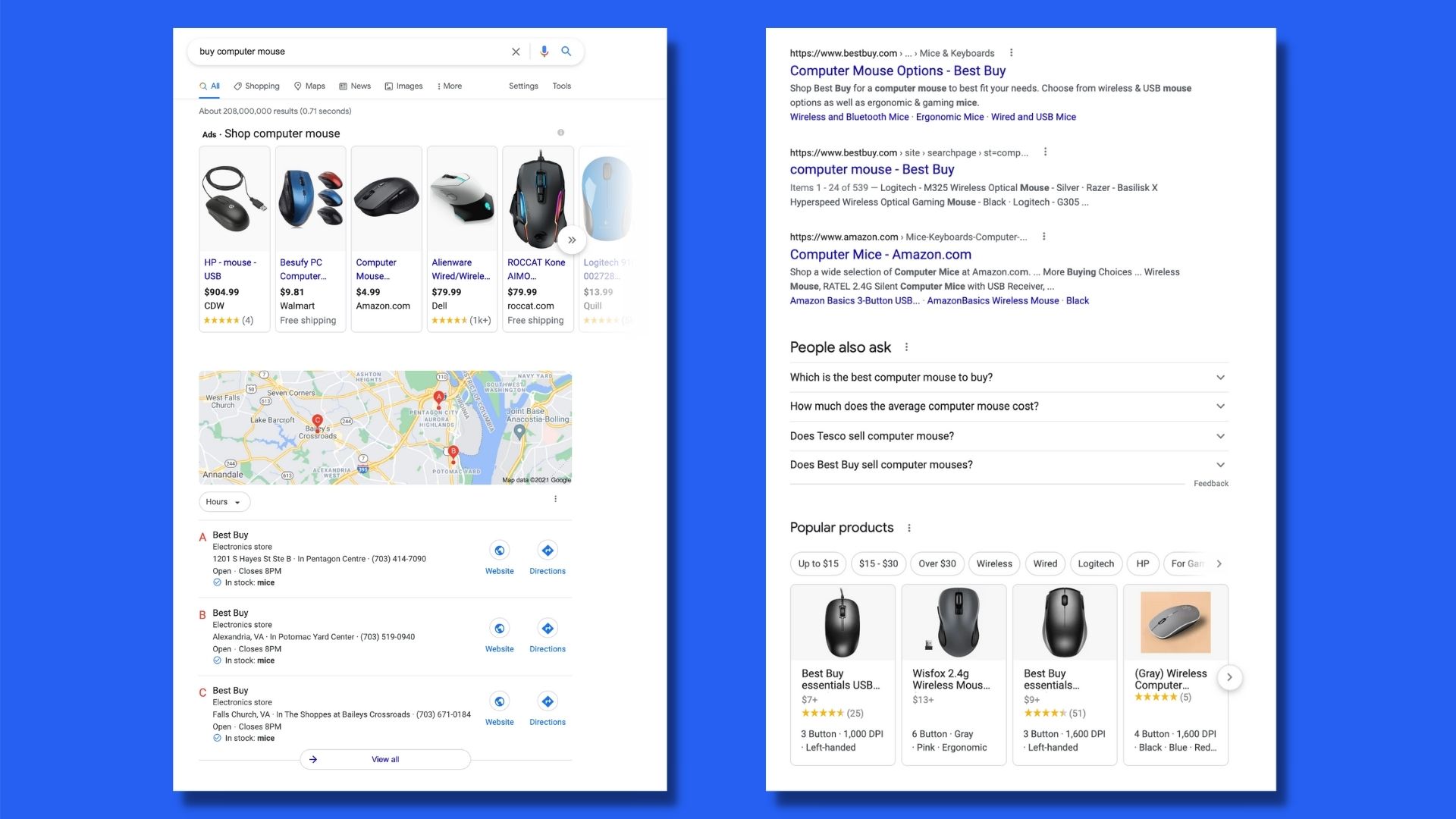
Now, let’s say another user searches for ‘best computer mouse.’ The search intent is not to buy but to compare available products. Google serves timely articles reviewing computer mice.
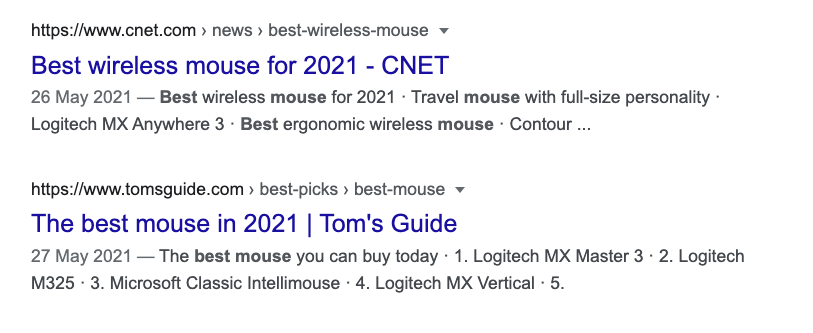
Satisfying search intent means optimizing your content in several distinct ways:
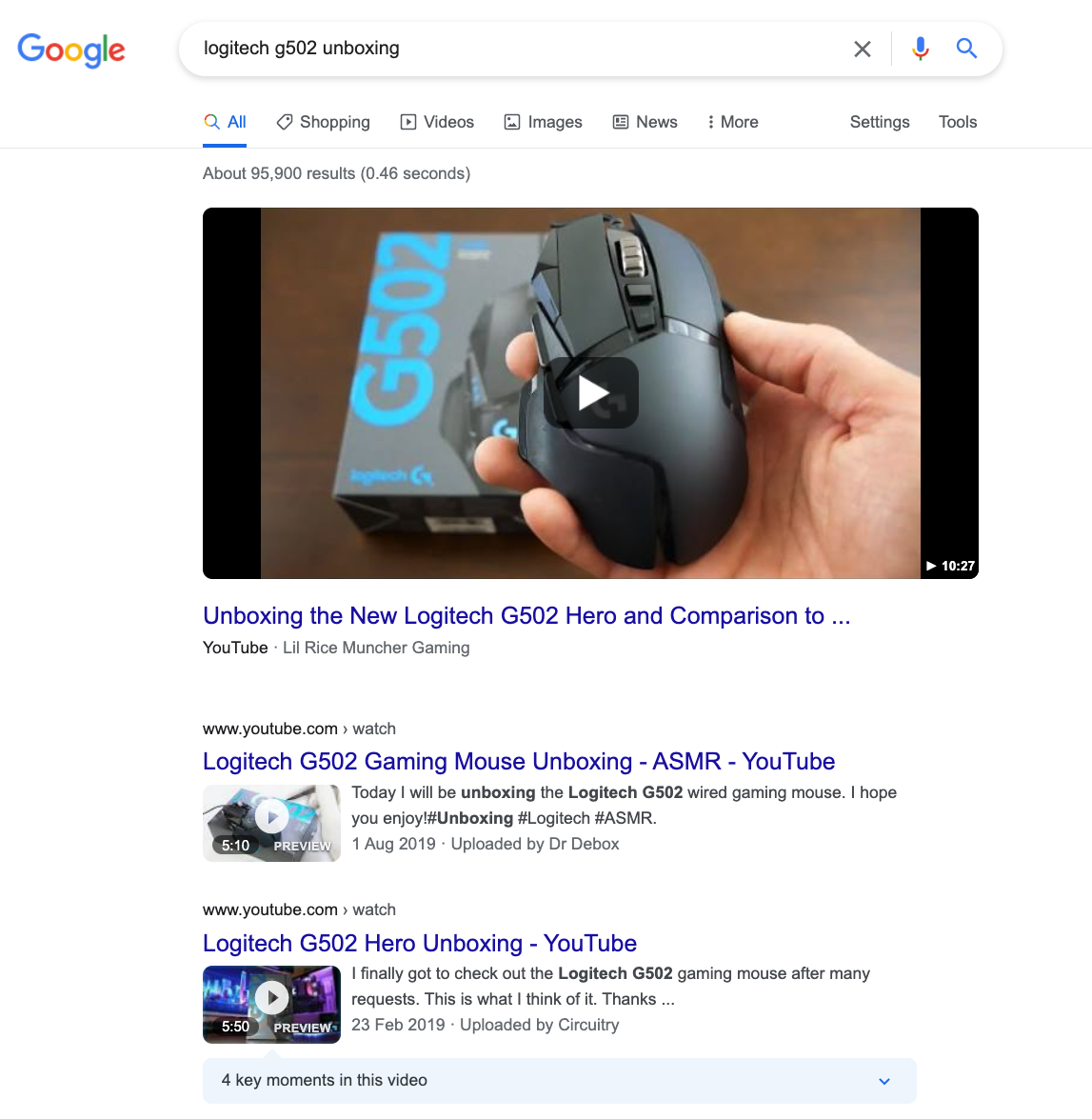
Thanks to PageRank, backlinks (links on other websites that point to your website) are one of the most crucial elements of SEO. To build your website’s topical authority, you need a natural, relevant, and diverse link profile that utilizes your high-quality content. Here’s a deeper dive into building a backlink profile.
Technical SEO should always aim to improve the user’s experience. Here are several of the key factors to watch out for:
Page speed
If your page load time increases from one second to three, the probability of bounce increases by 32 percent – and that stat is from 2017, before TikTok broke our collective attention span. While page speed is more of a tie-breaker, it’s still worth checking your page’s load speed using Google’s PageSpeed Insights.
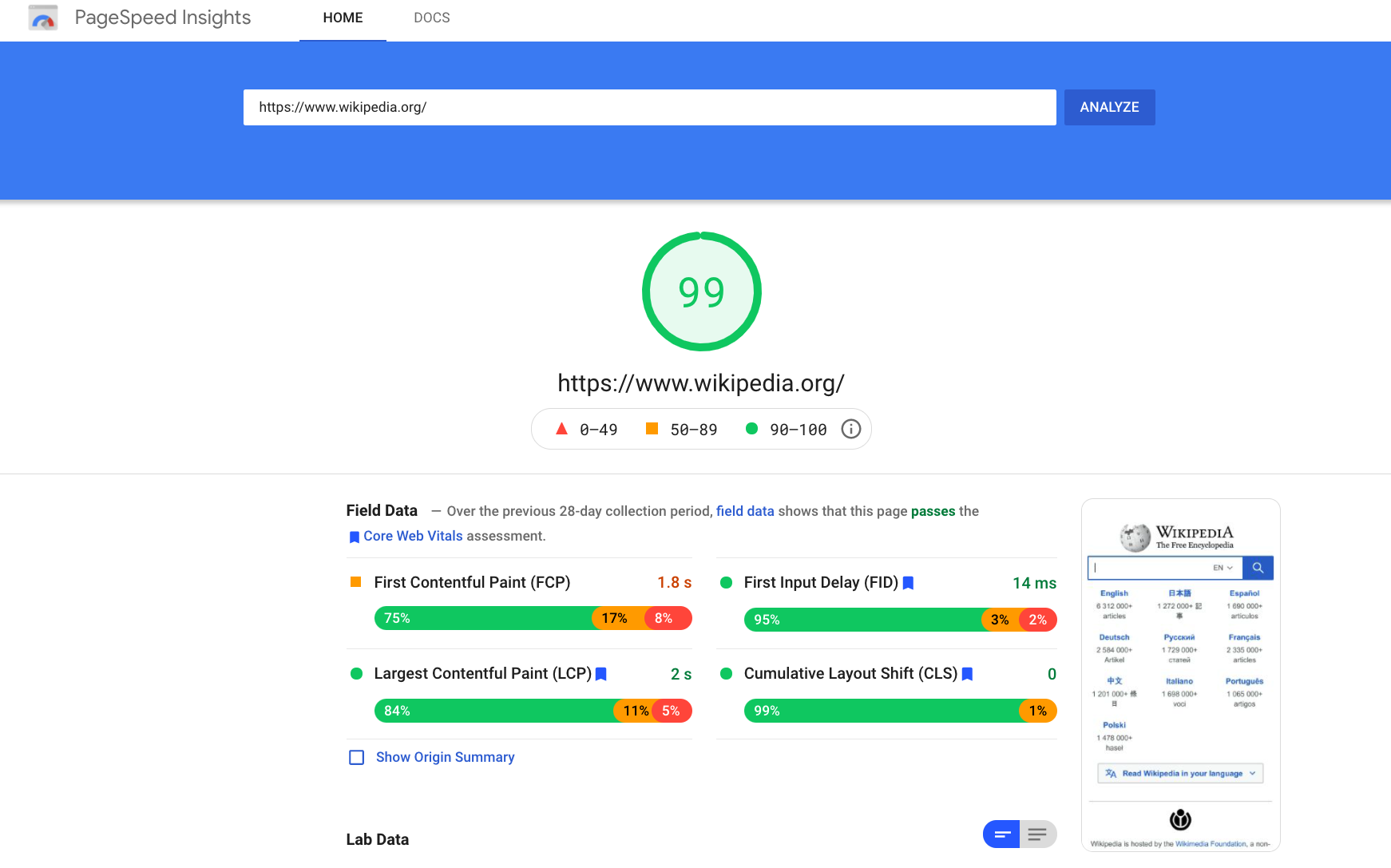
Mobile-friendliness
Shock horror! The mobile version of your site will eventually become the only version that Google indexes, so it’s more important than ever to ensure every web page is mobile-friendly. Here’s how to find out if your website is mobile-friendly or not.
HTTPS
Google shows a ‘Not secure’ warning in Chrome when users visit an unencrypted page (a page without an SSL certificate). Despite this, HTTPS is a lightweight ranking factor – it won’t change the game, but it’s worth noting.
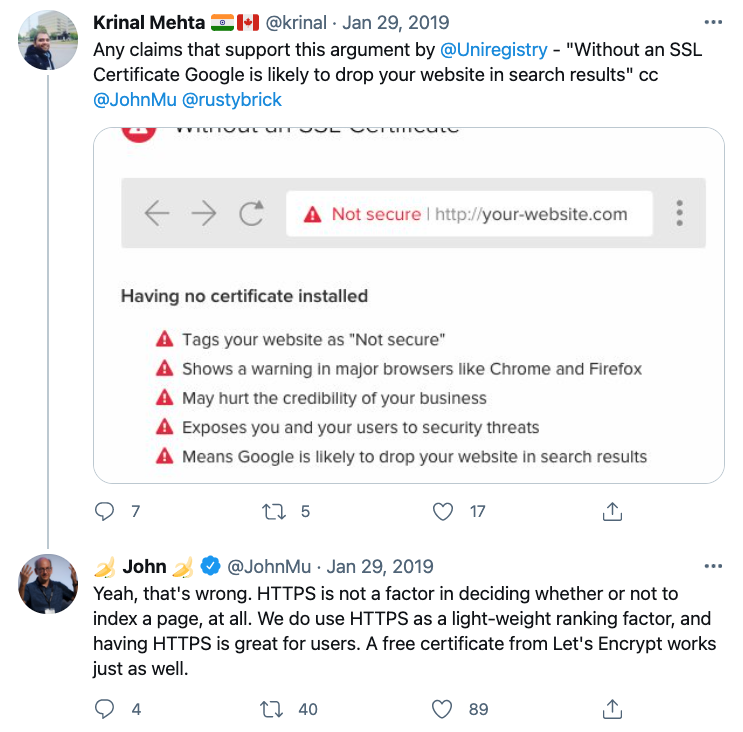
In May 2020, Google announced a shiny new set of metrics relating to ‘speed, responsiveness, and visual experience’ – or, put simply, real-world page experience.

Google wasn’t exactly upfront about how Core Web Vitals – Largest Contentful Paint (LCP), First Input Delay (FID), and Cumulative Shift Layout (CLS) – would influence search rankings. Still, the word ‘vital’ should tell you something.
There’s a lot to unpack about Core Web Vitals and why they’re important, but the gist of it is this: they simplify page performance metrics, and that makes our lives as SEOs, marketers, business owners, and developers a bit easier.
Focusing on Core Web Vitals alone is not enough to elevate your web page to the coveted top spot. In isolation, none of the ranking factors mentioned in this article can do that.
There’s no master recipe, no secret code that’ll unlock the top spot in SERPs. Instead, it’s about making small changes and incremental improvements that, on their own, might not seem like much, but together, fuel your website’s performance in organic search results.
Some of the most important improvements relate to Google’s most relevant ranking factors, which include:
It takes a village to raise a child and hundreds of optimizations to raise your position in SERPs. If you need an expert team to guide you through Google’s mirror maze of ranking factors, we’re ready. Get in touch today, and let’s chat.
Sign up for the Rank Report — the weekly iPullRank newsletter. We unpack industry news, updates, and best practices in the world of SEO, content, and generative AI.
iPullRank is a pioneering content marketing and enterprise SEO agency leading the way in Relevance Engineering, Audience-Focused SEO, and Content Strategy. People-first in our approach, we’ve delivered $4B+ in organic search results for our clients.